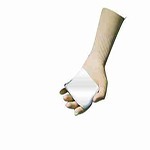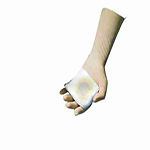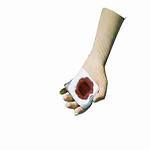The flowing and course of something.
The flowing and course of something.
It is blood that flows from the uterus of a female at a particular time (in the month) and without any cause, when she is healthy.
Its color is black, as though it is burnt, it is accompanied by abdominal pains, and has an objectionable odor. The woman also might feel particularly hot during her cycle.
There is no particular age when menstruation starts. It differs according to the environment, weather and nature of each female. Whenever a female sees this blood, then she is a menstruating woman.
There is no particular limit for menstruation. There are some women who menstruate for three days, and some four days, but the most it can be is for six or seven days. The Prophet ﷺ said to Hamnah bint Jahsh who used to menstruate for many days: “Observe your menses for six or seven days, Allah alone knows which it should be. After that you must take a (purificatory) bath.” [ narrated by Abu Dawud.]
A fundamental princple in Islamic Law is that a pregnant woman doesn’t menstruate. But when a pregnant woman sees blood when the time for delivery approaches, and this is accompanied with pains (contractions), then this blood is deemed as post–natal bleeding. But if it is not accompanied with pain or if it occurred far from the time of delivery, then it is menstrual blood.
As-Sufrah is the pale yellow blood that flows from a female.
Al-Kudrah is black or very, very dark blood.
When a woman sees pale yellow blood or black blood, or sees usual wetness, then her situation is either of the following:
a. She sees it during the period of menstruation or right before the time of purity (from menstruation).
In this condition, the ruling regarding one who menstruates applies for her. This is in accordance with the hadeeth narrated by A’ishah.
She stated that the women used to use pieces of cloth similar to pads during their menstrual cycles. When they saw the cotton stained with pale yellow blood, she would say to them: “Do not be in haste. Wait until you see the whitish discharge.” She meant that it (the whitish discharge) is the sign of purity from menstruation.”
b. Or she sees it after purification (from menstruation).
In this situation, it will not be regarded or given any consideration. Neither wudu’ nor al-ghusl is therefore imperative on her. This is according to the hadeeth narrated by Umm’Atiyyah when she said: “We used to not regard Al-Kudrah and As-Sufrah as (being) important after purification.” [ narrated by Abu Dawud.]
 Sign of Purity
Sign of Purity Picture of As-Sufrah
Picture of As-Sufrah Picture of Al-Kudrah
Picture of Al-KudrahIf a woman sees menstrual blood on a day and purity on another her situation is either of the following:
This is a condition known as Al-Istihadhah.
If the flow of blood ceases sometimes and runs at other times, then its ruling is as follows:
i. If the blood flow stops for less than a day, that day is counted as part of a menstrual period.
ii. If she sees what indicates purity (e.g. a whitish discharge) at this time, this is considered the end of menstruation. She then is regarded as being pure, regardless of whether the blood has stopped recently or a long time ago, or it stopped more or less than a day ago.
It is the continuous flow of blood from the vagina of a woman. It doesn’t stop at all or it stops for only a short while.
| Menstrual Blood | Istihadhah Blood |
| Thick and Blackish. | Light Red In Color |
| Has An Objectionable, Foul Odor | No Odor |
| Doesn’t Form Clots | Forms Clots |
| Flows from the Upper Part of the Uterus | Flows from a Vein in the Lower Part of the Uterus |
| Natural and a Sign of Good Health | Flows as a Result of an Irregularity or Sickness/Disease |
| Flows at a Known Time-Period | Has no Known Period |
In this case, she first apportions this number of days for her menses, and then counts the remaining days as istihadah. Ai’shah reported that Fatimah bint Abi Hubaish (may Allah be pleased with her) said : “O messenger of Allah, my menses do not stop, do I leave Salah?” He replied: “No, that is what flows from a blood vessel. You should not observe As-Salah for the number of days you usually have menstruation, then take a bath afterwards and observe As-Salat.” [ narrated by Al-Bukhari.]
If this is her case, she distinguishes between the two types of blood. It is confirmed from Fatimah bint Abi Hubaish (may Allah be pleased with her) that she used to suffer from istihadhah and the Prophet ﷺ said to her: “If it is menstrual blood, which is a known dark blood, then do not observe As-salat. But if it is the other (Istihadah blood), just perform wudu’, then observe As-Salah, because that is a flow from a blood vessel.” [ narrated by Abu Dawud.]
In this case, she apportions the most common number of days that most women menstruate, for her menses. This is usually six to seven days in every month. She starts counting the days of her menstrual cycle from the time she first sees blood, and she takes the remaining days in the month to be Al-Istihadah. The Prophet ﷺ said to Hamnah bint Jahsh: “Observe your menses for six or seven days, Allah alone knows which it should be; then wash. And when you see that you are purified and quite clean, pray for the next twenty-three or twenty-four days and nights and fast, for that will be enough for you. And do so every month, just as women menstruate and are purified at the time of their menstruation and their purification.” [ narrated by Abu Dawud.]
This woman counts her menses according to her customary number of days; and does not try to attempt to distinguish between the different types of blood. This is because the length of the days is more accurate for her. However, if she forgets what her customary number of days was, then she should attempt to distinguish between the different types of blood.
1- If a woman experiencing Istihadah knew her period of menstruation, but she then forgot the number of days, she therefore calculates using the most common number of days for menstruation - six or seven days.
2- If a woman knows the number of days for her period but forgets the time for her cycle, i.e. if it comes at the beginning or end of the month, then she calculates the number of days she uses for menstruating from the beginning of the month.
Similarly if she says that it usually occurs in the middle of the month, but she isn’t sure of the day it actually occurs, then she starts to calculate the number of days of menstruation from the first day in the middle of the month, because the middle of the month is more accurate for her.
3- When the period for menstruation is over, a woman experiencing istihadah must take a purificatory bath/ghusl and put a piece of cloth or the like around her vagina, and thus she is considered pure. She prays and fasts without bothering about the blood which flows after she has performed wudu’. This is because she is excused. As for purifying herself, she does it in one of the following ways:
a. She performs wudu’ for prayers at the beginning of the time of each Salah. She does this after she has cleaned her private parts and placed a piece of cloth over her vagina. The Prophet ﷺ said to Fatimah bint Hubaish: “Thereafter, perform wudu’ for each Salah, then observe As-salat.” [ narrated by Abu Dawud.]
b. She delays Zhuhr until a short while before Asr, she then takes a bath after which she observes both Zhuhr and Asr. This is due to the statement of the Prophet ﷺ to Hamnah bint Jahsh (may Allah be pleased with her): “If you’re able, delay Zhuhr and hasten Asr. Take a bath and pray the two together (Zhuhr and Asr). And if you can, delay Maghrib and hasten Ishaa. Take a bath and observe the two together (Magrib and Ishaa). And if you’re able to bathe for Fajr, then do so. And then fast – if you have the strength for that.” [ narrated by Abu Dawud.]
c. She takes a bath for each Salah. This is according to what was recorded concerning Umm Habibah who suffered from Istihadah for seven years. She asked the Messenger of Allah ﷺ about this, and he ordered her to take a purificatory bath. Thereafter, she took a bath for every subsequent salah. [ narrated by Al-Bukhari.]
4- If a woman bleeds for any reason – e.g. surgery on the uterus and blood flows out of her vagina, one of the following conditions will be applicable:
a) That she can’t menstruate any more (passed menopause). In this condition, she will not be under the rulings concerning istihadah and will not be prevented from salah at any time. The blood will be considered as blood occurring as a result of sickness. Thus she will have to perform wudu’ for each Salah.
b) That it is still possible for her to menstruate (has not attained menopause). In this case, the rulings of Istihadah apply.
5- It is permissible to have intercourse with a woman suffering from Istihadah because the Shari’ah does not prohibit this.
The blood that comes from the uterus of a female as a result of childbirth.
There is no time limit for the least amount of days - in number - for post natal bleeding. As for the maximum amount of days, it is usually forty days, unless the bleeding stops before then. As soon as it stops, she takes a bath and starts to observe As-Salat.
1- If a woman gives birth and sees no blood, although this is indeed very uncommon, she performs wudu’ then prays. She does not have to take a bath.
2- When post-natal bleeding continues for more than forty days and her usual condition is that it stops after the fortieth day, and there are indications that the bleeding may stop, then she waits for the bleeding to stop. If the bleeding continues, then she is suffering from Istihadah and the rulings concerning Al-Istihadah apply to her.
3- If she becomes pure before the fortieth day, then she’s in a state of purity so she should take a bath, pray, fast and her husband can have sexual relations with her.
4- If she becomes pure before the fortieth day and then she starts to bleed again within the remainder of the forty days, then she is to examine the blood.
a. If she recognises that it is post-natal bleeding, then such is the case.
b. If she recognises that it isn’t post-natal bleeding, then she is considered pure.
5- Post-natal bleeding is not confirmed until what is born has the shape of a human. If a woman gives birth to an embryo or a foetus that is born before maturity and which does not have the shape of a human, there are three conditions:
a. This is just bad blood if it occurs before the first forty days of pregnancy. She is thus required to take a bath, pray and fast.
b. If this occurs after eighty days of pregnancy, then it is post natal bleeding.
c. If this occurs between forty and eighty days, then it (the blood) is checked to see if it is a fetus. If it is, then the blood is post-natal. But if otherwise, it’s just bad blood.
Allah, The Mighty and Sublime, says: “ They ask you concerning menstruation say: That is an Adha (a harmful thing for a husband to have intercourse with his wife while she is having her menses). Therefore keep away from women during menses and don’t approach them until they are purified (from menses). And when they have purified themselves (i.e. have taken a bath), then approach them as Allah has ordained for you (have intercourse with them in any manner as long as it is in their vagina). Truly Allah loves those who turn to Him in repentance and loves those who purify themselves.” (Baqarah:222).
The Prophet ﷺ said (to the companions) when this verse was revealed: “Do everything (with them) (during menstruation) except sexual intercourse.” [ narrated by Muslim.]
1- A man who has sexual intercourse with his wife while she is menstruating is a sinner. He has to pay a penalty for the expiation of his sin. She also pays a penalty if she willingly agreed to this act. The penalty is by giving charity worth a dinar or half a dinar. This is according to the hadeeth narrated by Ibn ‘Abbas t in which the Prophet ﷺ said concerning the one that had intercourse with his wife during menstruation: “He should pay the value of a dinar or half a dinar.” [ narrated by Abu Dawud.]
A dinar equals 4.25 grams of gold
2- When a woman’s menstrual flow stops, a man must not have sexual intercourse with his wife until she has taken a purificatory bath. Allah, the Mighty and Sublime, says: “... And don’t approach them until they are purified.....” (Baqarah:222) i.e. purified from menstrual blood. Then He says: “....and when they have purified themselves.....” (Baqarah:222) i.e. have taken a bath, then He says: “....then approach them as Allah has ordained for you.....” (Baqarah:222) i.e. sexual intercourse.
The Prophet ﷺ said to Fatimah bint Qays: “When menstruation comes, leave As-Salah, but when it leaves, take a bath (to be purifed) from the blood and commence with as-salah.” [ narrated by Abu Dawud.]
1-A woman does not make up the prayers missed due to her menstruation. It’s reported from A’ishah (may Allah be pleased with her) that she was asked about why women make up for missed fasts (as a result of menstruation) and not for missed prayers. She replied: “We used to be afflicted with that (having menstruation during Ramadhan etc.) and we were ordered to make up for our missed fasts (by fasting at other times), but were not ordered to make up for missed prayers.” [ agreed upon.]
2-Offering prayers at or within their prescribed times is obligatory on a woman who is close to the beginning of her menstrual cycle until she actually starts to menstruate.
Similarly, this applies to a woman whose cycle has ended slighty before the time prayer finishes. This applies to her even if the amount of time left to pray the due prayer is the time it takes to pray one raka’a of a prayer.
However if the time left to offer the prayer is less than the time it takes to pray one raka’a, then she is excused from the prayer.
The Prophet ﷺ said: “He who catches a complete raka’a of Salah (prayer) (with the Imam) has indeed caught the whole As-Salah.”[ agreed upon.]
The Prophet ﷺ said: “Is it not that when she (any muslimah) menstruates, she will not fast or pray?” We replied: “O, yes!” [ narrated by Al-Bukhari.]
If the menstrual blood of a woman stops before Fajr and she fasts; her fast is valid, even if she does not take a bath until after Fajr.
Allah Says: “None should touch it (the Qur’an) but the purified ones.” (Al-Waaqi’ah: 79) The Prophet ﷺ said: “The Quran should not be touched except by the pure.” [ reported by Malik who narrated it in Al-Muwatta.]
The Prophet ﷺ said to A’ishah when she menstruated: “Do what a pilgrim does, except circumambulation, until you are pure from your menstrual cycle.” [ agreed upon.]
Also, Ibn ‘Abbas t narrated that the Prophet ﷺ said: “The people, except the menstruating women, are ordered to perform circumambulation of the Ka’bah as the last deed during Hajj.”[ agreed upon.]
Allah says: “O you who believe! Approach not As-salat (the prayer) when you are in a drunken state until you know (the meaning of what you utter), nor when you are in a state of Janabah (sexual impurity), except when you are on a journey (or just passing by), until you wash your whole body (take a bath) ” (An-Nisa:43)
1- There is no sin on a menstruating woman who walks through the mosque if she does not fear she will stain the mosque with her blood. This is evident in the generality of the sayings of Allah: “... except when travelling on the road (on a journey or passing through.)” (An-Nisa’43)
2- It is forbidden for the menstruating women to stay in the place where the Eid prayer is being prayed. The Prophet ﷺ said: “The menstruating women should stay away from the place of prayer (for the Eid Prayer).” [ agreed upon.]
It is prohibited for a man to divorce his wife while she is on her menstrual cycle. Allah (exalted be He) said: “ O Prophet ﷺ, when you divorce women, divorce them at their Iddah (prescribed times),” (At-Talaq:1) meaning when they are in a state of purity and not menstruating - so their iddah can be calculated accurately.
Divorcing a woman while she is on her menstrual cycle is a reprehensible innovation..